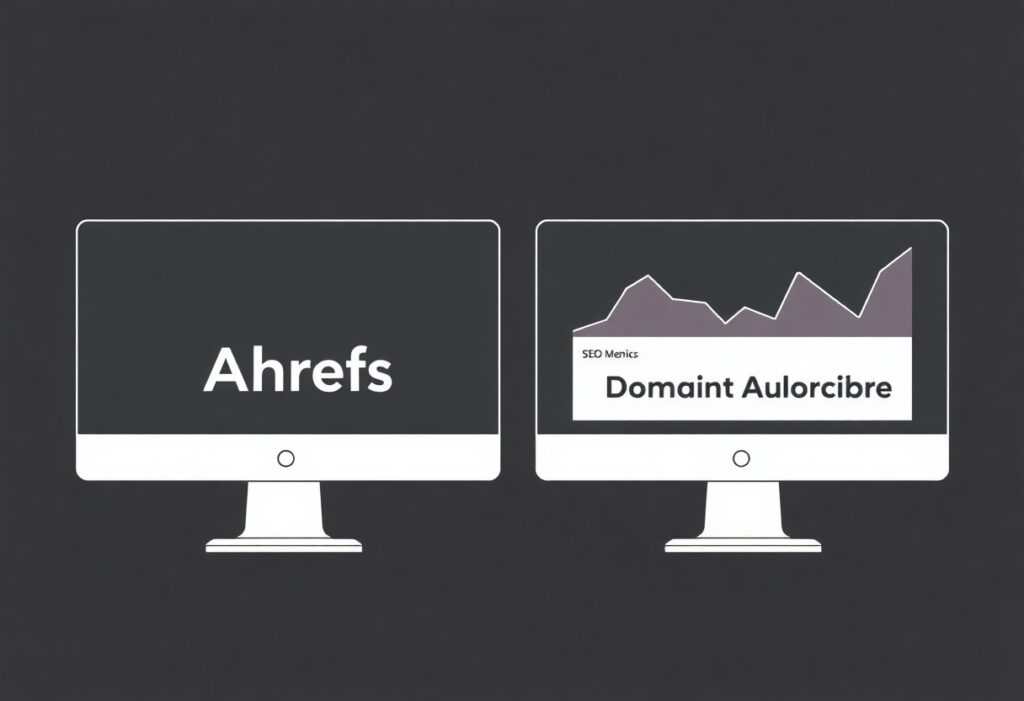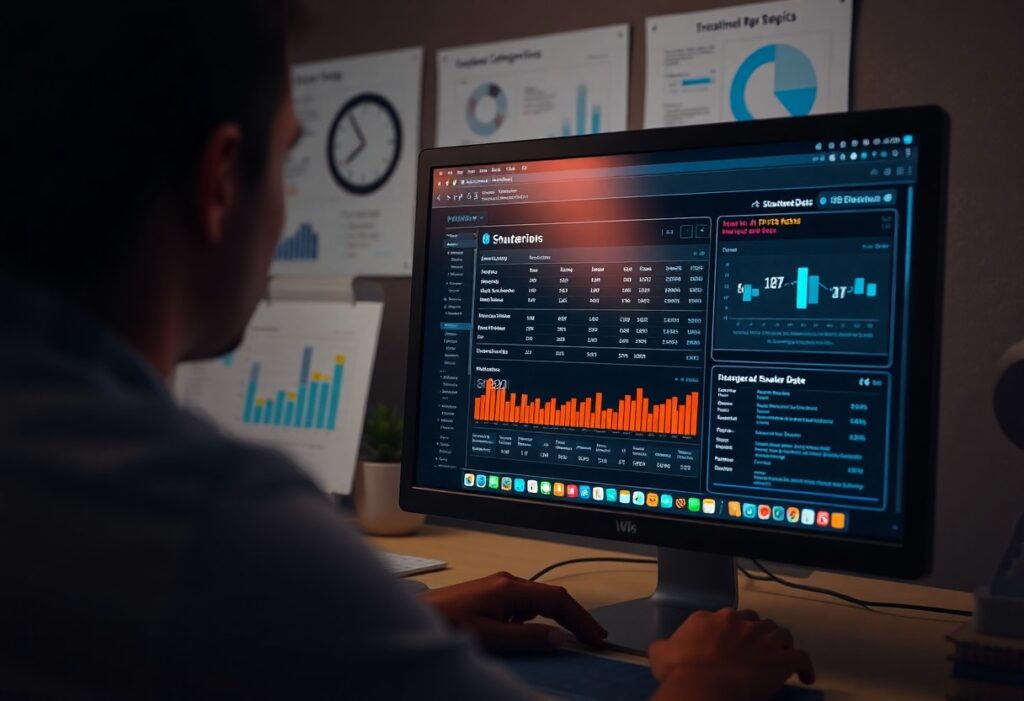Just as you begin optimizing your content, it’s vital to understand the role of Local Intent Keywords in headings. These keywords help connect your business with nearby customers searching for your services. By strategically placing Local Intent Keywords in your headings, you can boost your visibility on search engines, ultimately driving more qualified traffic to your website. Additionally, using these keywords appropriately not only enhances SEO but also engages your audience more effectively. Thus, as you implement this technique, you’ll find that your chances of attracting local clientele increase significantly. With advice from Rank Authority, let’s explore how to integrate Local Intent Keywords seamlessly into your headings.
Understanding Local Intent Keywords
As a business owner, you must comprehend the essence of Local Intent Keywords for effective online visibility. These keywords are phrases that target local audiences seeking specific services or products within their geographic area. When you optimize your website using these keywords, you not only enhance your chances of appearing in local searches but also attract customers who are ready to convert. Thus, mastering local intent can significantly elevate your marketing efforts and lead to increased sales.
Definition and Significance
Beside enhancing your visibility, understanding local intent keywords can drive high-quality traffic to your site. Local intent keywords focus on the geographical aspect, catering to consumers searching for services in their vicinity. They are vital for connecting with potential customers actively looking for solutions. By integrating these keywords into your content, you can improve your search rankings and outreach.
Types of Local Intent Keywords
To effectively target your audience, it is vital to recognize the different types of local intent keywords. They can be classified as:
- Location-based keywords
- Service-related keywords
- Long-tail keywords
- Geo-modifiers
- Branded local keywords
Recognizing these types helps in crafting targeted content that matches the search behavior of your local customers.
| Type | Description |
| Location-based keywords | Keywords with a specific location included. |
| Service-related keywords | Keywords focusing on specific services offered. |
| Long-tail keywords | More detailed search phrases with lower competition. |
| Geo-modifiers | Modifications to keywords to indicate location. |
For instance, you might use regional terms, or even neighborhoods, to cultivate a connection with local customers. Integrating Local Intent Keywords in your strategy can significantly enhance your online presence. Consider using these keywords in your headings and content.
- Local abbreviations
- Neighborhood identifiers
- Service phrases
- Popular local landmarks
- Event-specific keywords
Recognizing the importance of these variations builds a more robust SEO strategy.
| Keyword Type | Usage |
| Local abbreviations | Enhances search relevancy. |
| Neighborhood identifiers | Connects with specific audiences. |
| Service phrases | Tailors content to user needs. |
| Popular local landmarks | Aids in local SEO efforts. |
Incorporating these insights allows you to refine your approach effectively. Make the most of Local Intent Keywords to increase your online visibility with Rank Authority, where we harness AI-driven strategies to propel you forward.
Best Practices for Using Local Intent Keywords in Headings
Some effective best practices for using local intent keywords in headings include making sure your headings are not only engaging but also optimized for SEO. Be sure to incorporate local intent keywords naturally to resonate with your audience. This positioning helps search engines understand your content’s geographical relevance while also appealing to potential customers in your area. Additionally, use relevant variations of your local intent keyword to capture a broader audience and increase your chances of visibility online through platforms like Rank Authority.
Placement Strategies
Above all, strategic placement of local intent keywords enhances your headings. Aim to position these keywords at the beginning of your headings, as this often has a stronger impact on search engine algorithms and users’ attention. By placing them early, you signal your content’s focus right away, thus improving your chances of ranking higher in local searches. Make sure to avoid keyword stuffing and instead, keep your headings concise yet descriptive for optimal user experience.
Optimization Techniques
About optimization techniques, utilizing local intent keywords effectively can make a substantial impact on your content’s performance. Focus on maintaining a balance between creativity and specificity in your headings. Use tools to analyze potential keyword performance, ensuring you’re targeting the right phrases. Make sure you also incorporate semantic keywords that relate to your main local intent keywords, adding context for search engines and improving the relevance of your content.
In addition, using local intent keywords in headings helps improve visibility in local search results significantly. Optimize your headings for reader engagement by keeping them clear and descriptive. You might consider leveraging questions or action-oriented phrases as headings to increase click-through rates. Also, keep your headings concise while aligning them with the content they represent. Doing so not only assists search engines in indexing your content better but also helps your audience find what they need more quickly, ultimately boosting your authority with Rank Authority’s strategies.
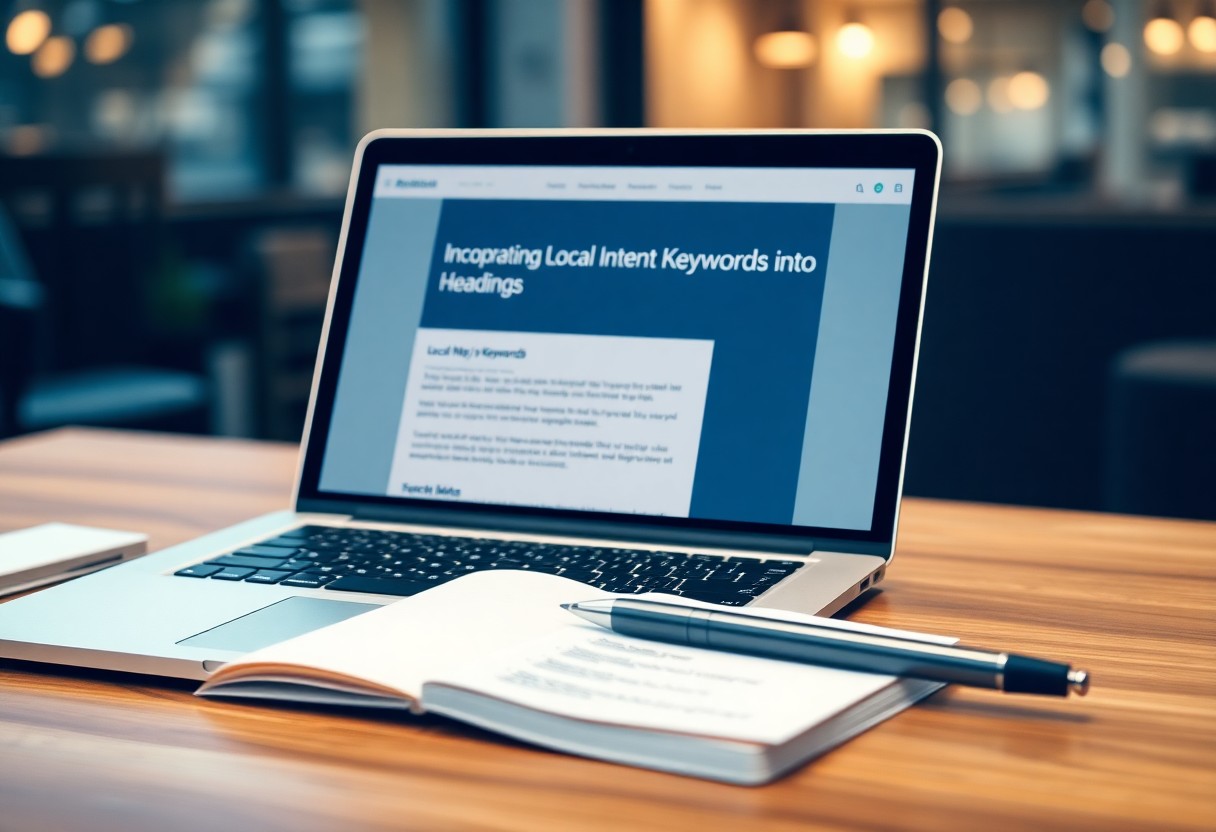
Impact of Local Intent Keywords on SEO
Any SEO strategy that aims for success must consider Local Intent Keywords. By implementing these keywords, you can significantly enhance online visibility, especially for businesses that thrive on local customers. When you optimize your content with specific local phrases, search engines will recognize your relevance to geographic queries, boosting your rankings in local search results. Ultimately, this means more potential customers discovering your business through organic traffic. With Rank Authority’s AI-driven solutions, you can effectively target these keywords to enhance your online presence.
Enhancing Local Search Rankings
An effective manner to enhance local search rankings is to incorporate Local Intent Keywords throughout your site structure and content. This practice allows your website to link more directly with the local audience you’re trying to reach. Moreover, search engines favor websites that are relevant to the user’s location in their search results. By prioritizing local intent in your SEO strategy, you can position your business higher on the search results page, making it easier for local customers to find you.
Attracting Targeted Traffic
Any business that wishes to thrive online must focus on attracting targeted traffic. By utilizing Local Intent Keywords, you can channel the right visitors to your site—those who are actively searching for what you offer in your area. This targeted approach increases your chances of conversion since these visitors are often looking for a specific product or service within your vicinity. With Rank Authority’s expertise, you can harness this traffic effectively.
Attracting targeted traffic through Local Intent Keywords allows your business to engage with individuals who are genuinely interested in your products or services. Focusing on these keywords means you’re connecting with potential customers who are likely ready to take action. Furthermore, by driving local traffic to your website, you’ll cultivate a stronger community presence, boosting both your reputation and sales. This targeted approach can lead to increased conversions and help position your business as a leader within your local market!
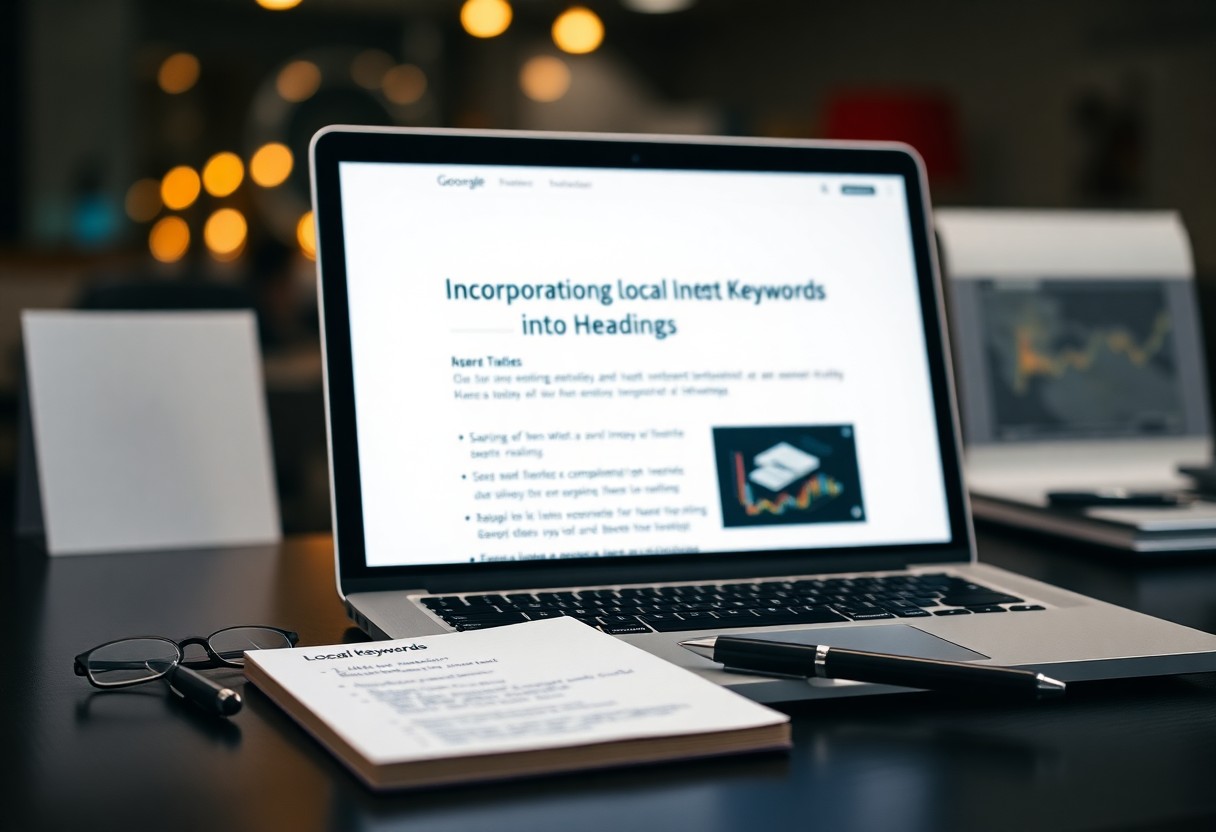
Examples of Effective Headings with Local Intent Keywords
After understanding the significance of Local Intent Keywords, you can see how effective headings can enhance your content’s visibility. By incorporating local keywords into your headings, you attract potential customers in your area. For instance, “Best Pizza Place in [Your City]” or “Affordable Plumbing Services in [Your Neighborhood]” not only specify the location but also highlight the intent behind the search, making your content more relevant and engaging.
Case Studies
Against the backdrop of competing businesses, here are some compelling case studies illustrating the power of Local Intent Keywords:
- Local Coffee Shop saw a 60% increase in website traffic by using “Best Espresso in Downtown” in their headings.
- Plumbing Services ranked #1 for “24/7 Emergency Plumbing in [City Name]”, leading to a 45% increase in calls.
- Real Estate Agency generated a 35% rise in inquiries through “Top Homes for Sale in [Neighborhood].”
- Spa Center experienced a 50% boost in bookings after optimizing headings with “Massage Therapy in [City Name].”
Creative Approaches
Among the techniques to enhance your headings are creative approaches that make your content stand out. This involves the use of catchy phrases or questions that include Local Intent Keywords. For example, instead of just “Best Bakery in [City Name]”, try “Where to Find the Best Bakery Delights in [City Name]”. This not only adds a personal touch but also sparks curiosity, encouraging users to click. Think outside the box; use engaging visuals alongside your headings. Testing different styles can reveal what resonates with your audience and drives more traffic to your site. By doing so, you’ll enhance user engagement and retention.
Tools for Identifying Local Intent Keywords
All businesses understand the significance of Local Intent Keywords. These are vital for driving relevant traffic and meeting your audience’s specific needs. The right tools will enable you to discover these keywords efficiently, ensuring that your content aligns with local search intent. Utilizing a mix of both free and paid resources is beneficial. By investing time in exploring what tools are available, you can make sure that your SEO strategy is on point and your website ranks high in local search results.
Keyword Research Tools
Behind every successful SEO strategy, effective keyword research tools play a pivotal role. Tools like Google Keyword Planner, SEMrush, and Ahrefs allow you to unearth Local Intent Keywords specifically related to your area. These platforms provide valuable insights into search volume, competition, and keyword variations, helping you hone in on what your target audience is looking for. By effectively utilizing these tools, you can discover and capitalize on the keywords that will drive traffic and improve your website’s visibility.
Analyzing Competitors
After establishing your keywords, the next step is to examine your competitors. Analyzing Competitors helps you identify which Local Intent Keywords they are successfully targeting. Identifying their strengths can offer you a competitive edge. Use tools like SpyFu or SimilarWeb to uncover their keyword strategies, including the search phrases they rank for. Be mindful of, these insights are valuable. They can highlight opportunities you may have missed or confirm you are on the right track. Furthermore, spotting gaps in their content can guide your efforts in creating unique, engaging content that resonates with local audiences and elevates your brand.

Common Mistakes to Avoid
To effectively incorporate Local Intent Keywords, you should steer clear of common pitfalls. A frequent mistake is not understanding the nuances of local searches. You have the opportunity to enhance your content by avoiding these errors, leading to better engagement and visibility. Optimize carefully to ensure your headings resonate with your audience, meeting their search intent.
Keyword Stuffing
Across the digital landscape, many content creators fall into the trap of keyword stuffing. This practice involves excessively using Local Intent Keywords in your headings and content, which can negatively affect readability and user experience. Rather than boosting your SEO, it may prompt search engines to penalize your site. Focus on natural language to connect with your audience authentically.
Ignoring User Intent
For optimal results, it’s imperative to focus on user intent behind Local Intent Keywords. Neglecting this aspect means you could misalign your content with what users are truly searching for in your area. It’s about understanding what brings people to your site and crafting your headings accordingly.
Even if your content is rich in Local Intent Keywords, failure to align with user intent can jeopardize your success. You need to consider why users are searching and what they expect to find. Tailor your keywords to reflect local needs and desires, creating a valuable connection. This approach not only enhances user satisfaction but also boosts your site’s credibility and authority in search results. When you prioritize matching local search intent, you enhance your visibility and effectiveness in reaching your audience.
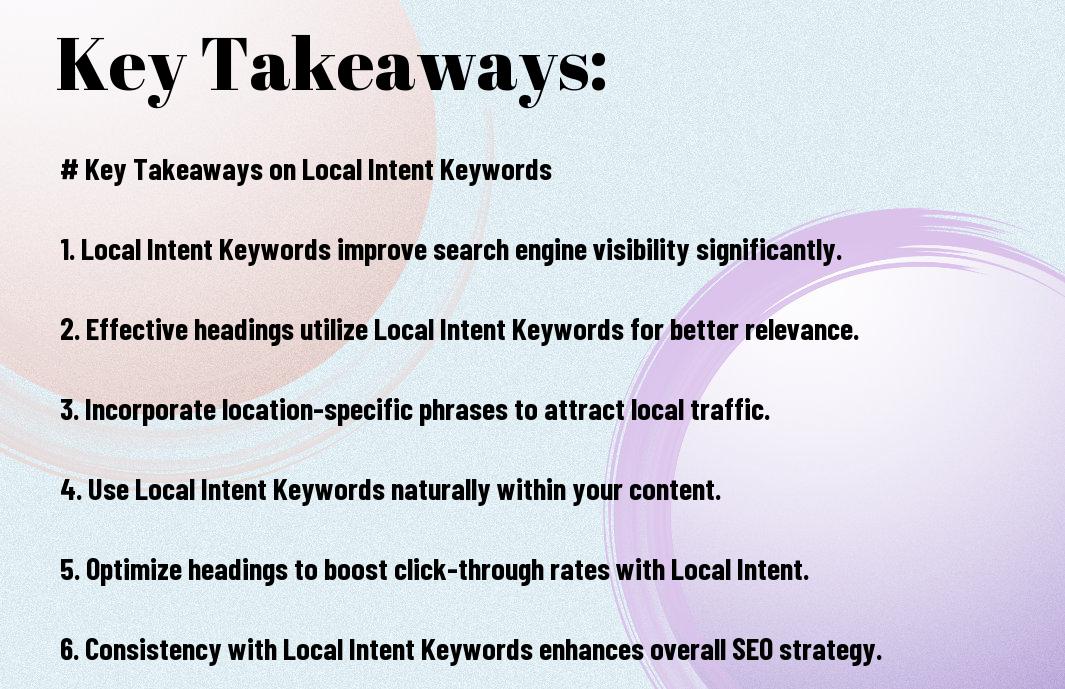
Final Words
Ultimately, incorporating Local Intent Keywords into your headings can significantly enhance your visibility on search engines. By strategically placing these keywords in your headings, you not only make your content more relevant to local searches but also attract the right audience to your website. As you optimize your content, consider how Rank Authority can assist you in harnessing these keywords effectively, ensuring your business stands out in local searches. Additionally, using Local Intent Keywords throughout your blog will improve readability and engagement, ultimately benefiting your SEO strategy. Take charge of your local presence today.

Sign Up for Free!
One-Click Fully Automated SEO.
Boost Rankings, and Increase Traffic.
Instantly Optimize Your Site.
- No Coding
- No Credit Card Required
- One Click Setup








